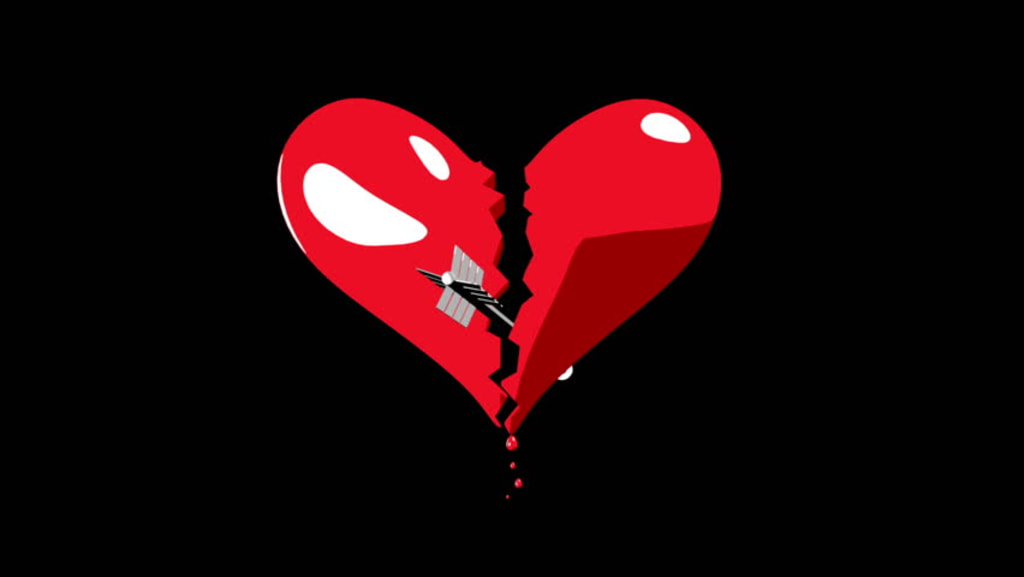Unrequited Love Is Such Bullshit
B.S. for Short

I had a co-worker once with the initials B.S. who was incredibly brilliant. Every time he submitted remarkable work, the mantra often recited was, "that was some B.S." He hated it. We thought it was hilarious.
If you've heard of Taylor Swift, and chances are you have, then you've probably heard one of her earlier "Country" tracks written circa 2010, entitled "Love Story." Ultimately, the song is about two (what I'm guessing to be) young, star-crossed lovers who end up getting married in the end. The chorus is this cute, little, annoying refrain that reads something like this:
"And I said
Romeo, take me somewhere we can be alone
I'll be waiting, all there's left to do is run
You'll be the prince and I'll be the princess
It's a love story, baby, just say yes"
Now that that's over, let's get to the real rant of the day, entitled: Unrequited Love Is Such Bullshit.
Seriously. We as shallow human beings who walk the face of the Earth and have for quite some time, have a problem. We look at famous pieces of literature such as Romeo and Juliet, and we think to ourselves, "two star-crossed lovers, how romantic," completely ignoring the fact that Romeo and Juliet was originally written to be labeled a tragedy. Do you know what happens in tragedies? People die! Has anyone not read or at least heard of how the story ends? SPOILER ALERT: The two commit suicide together! How crazy is that? Why, under Heaven, do we think that that story is romantic? Are we obsessed with death? Maybe, but I think the real problem might be: We romanticize what we can't have or no longer have.
We romanticize what we can't have or no longer have.
I just had to label somebody in my phone as, "Do Not Contact," because I kept romanticizing what was no longer present in my life. I had to come to a realization that in order for me to completely walk on this journey of wholeness I've been on for quite some time, I had to force my mind to physically get over the hump of what was no longer present in my life. Easy, right?
It's about as easy as eating nails for breakfast...
So why do we do it? Why do we romanticize what we can't have?
The Scientific Answer: When someone breaks our heart, our brains are often clouded in dopamine, endorphins, serotonin, and oxytocin. This is why, in our minds, we keep only referring to the good times with someone and overlook the red flags that existed all along. Over time, our natural ebb and flow of the four chemicals in our brain cause a dip and rise. This is okay, because it's actually normal. We aren't supposed to be "high" all of the time. We are supposed to feel "low," as well.*** It's during the low-points in our brain's chemical makeup, though, that we experience the general feeling of heartache. In order to make the "low" feeling disappear and the "high" feeling to reappear, we often romanticize the person who hurt us, or for me it's always reaching out to the person who hurt me, to get our dopamine, endorphin, serotonin, and oxytocin levels back up. This creates a vicious cycle of - yep, you guessed it - unrequited love.
*** I found this incredibly helpful information out in a book entitled Habits of a Happy Brain by Loretta Graziano Breuning, PhD, which you can find on Amazon.
The Actual Answer: Hollywood. As I mentioned earlier, we have a problem. Hollywood's movie industry has thrived immensely off of creating sappy, unrealistic, "romance" movies and we as society have eaten it up like that nauseating chocolate cake scene from Matilda. I think I just threw up a little... Anywho...
For some far-fetched reason that I will never understand, Hollywood has come up with this brilliant idea for decades that a man and woman will meet spontaneously and "fall in love." They will eventually have this YUGE (yes, I did just say "yuge") fight that will end up in the inevitable, forthright, breakup. An indistinguishable amount of time will pass before the guy (or the girl) will ultimately stalk his unrequited lover until they finally meet again. When the two finally meet again, there will be a long, annoying, and nauseating soliloquy that will ensue about how one can't live without the other, thus ending the movie in a "they lived happily ever after," moral. Fancy, right?
How did we not see this coming?!
What does a person expect to find after watching one of these things? I can tell you what a person can't (and shouldn't) expect to find: Actual. Love. Investment. The situation I described above is a little thing I learned in 'Nam called infatuation, i.e. good, old-fashioned lust. Now, as fun as lust is, it's not love. As fun as it is to feel the tension and chemistry with another person, it won't keep you in your marriage bed a year from now. Lust satisfies the "right now" urge. Love fuels the "now and tomorrow" mentality.
Lust doesn't see past the "highs" and "lows" of the rising and dipping of our brain chemicals. Love powers through them all. Simply put:
Ain't no other emotion gonna do that for you.
Building a relationship on lust is like building a house on quicksand. Pretty soon, the tide is going to rise and ruin what you've built. Building on love, however, is like building a house on a firm foundation—concrete. Ain't no tide gonna rise strong enough to take that thing out. And trust me when I say, there will be tides that will rise. Why? Because people are imperfect.
People lie.
People cheat.
People hurt other people.
Lust will run from that reality. Wanna know why? Because there's nothing sexy about those truths; and lust's greatest fuel is (sex). But love won't.
If you've read my previous work, you know that I firmly believe in the power of love, and the firm belief I hold on to that is simply: love is a verb, not a feeling. Love is what we do, not how we feel.
In order to bring the conversation back full circle, I return to the question: Why do we romanticize what we can't have?
The Answer: More than this blog post being about another person and what lust and love is and isn't, the real answer lies in an identity issue we have with ourselves. We spend so much time watching Hallmark and Cinemax After Dark that we fail to see who we have truly neglected all along. Let me give you a hint: it ain't the one who broke our heart. We as a society have forgotten how to truly get to know ourselves. So because we don't know ourselves, we are so desperate to be with someone else—who will inevitably treat us like shit—so that that person can tell us who we really are. A little secret: Nobody on this Earth can do that for you. So how do we get to know ourselves? The solution is simple (maybe not for some, such as myself).
We go back to our childhood. We rediscover what made us come alive as children, because those desires we had as children paved the way for our genetic makeup today. For instance, I work in the legal field today because I loved to argue as a kid. I never took "no" for an answer. I have a degree in engineering because I loved fusing art with math. As a kid, I drew blueprints to fictional houses I would one day build.
I think that, in order for us to love ourselves, it is imperative that we go back to our childhood. Then, we will know much greater things about ourselves and our identity. Then, we will discover on that great adventure who we were always destined to be. This is not only to our benefit, but for the benefit of generations to come.
About the Creator
Christen King
I'm a Political Scientist, Paralegal, and Biomedical Engineering Technologist. I wrote a book once. It's on Amazon.






Comments
There are no comments for this story
Be the first to respond and start the conversation.